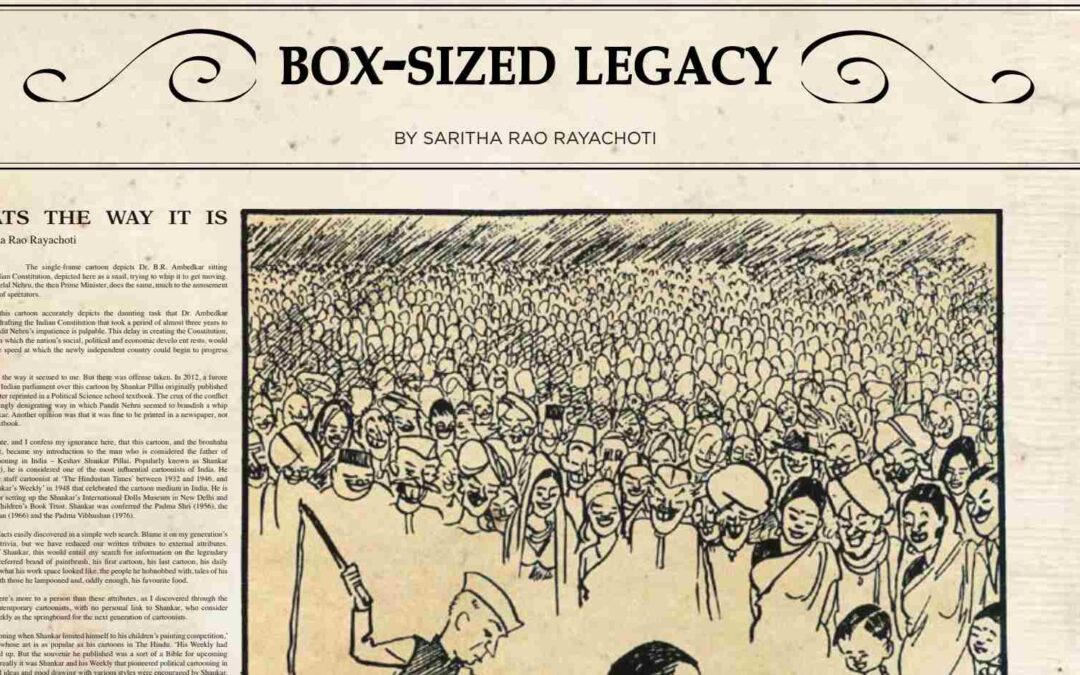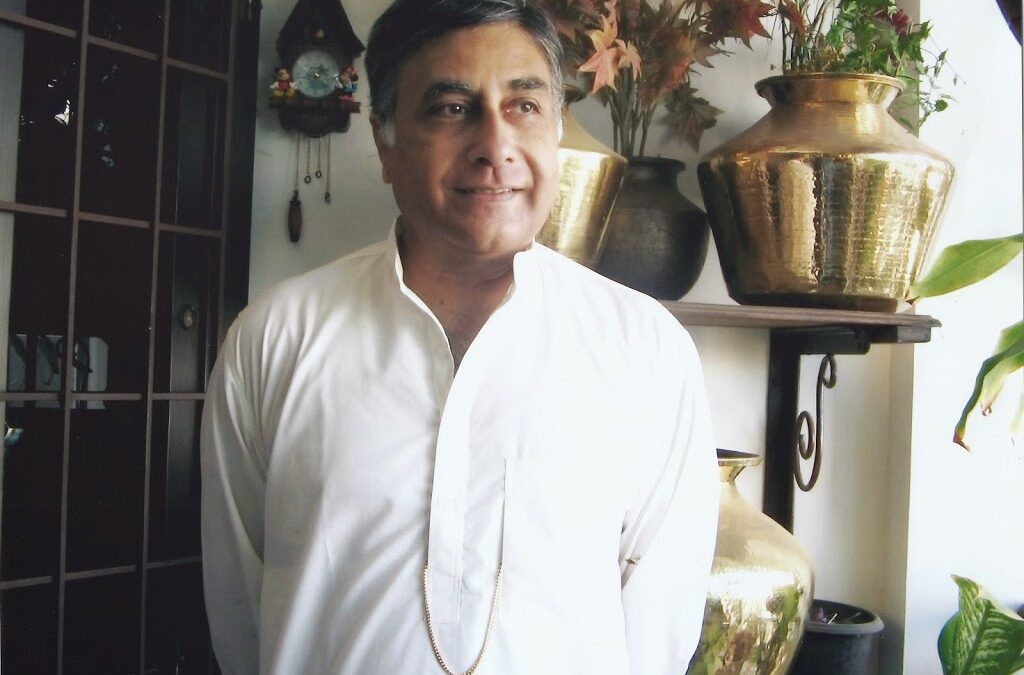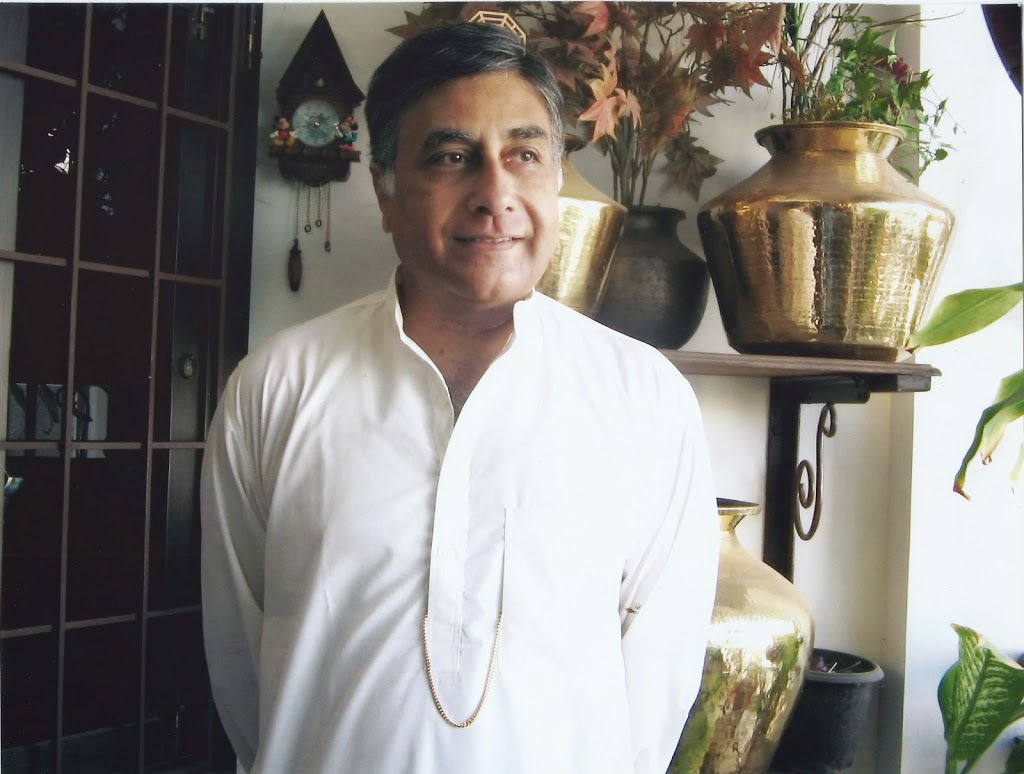


Box-sized legacy – Shankar
volume-2-issue-5-box-sized-legacy1
Super Naturally Indian
Artist and designer, Rajkamal, makes the concept of larger-than-life superheroes charming and delectable with his uniquely Indian touch. Read more at Arts Illustrated.
volume-2-issue-5-supernaturally-indian
Centre Stage – P.C. Ramakrishna
P.C. Ramakrishna, veteran theatre actor and director, recounts to Saritha Rao Rayachoti some of the high points of his 50-year association with English Theatre.
If performing Carnatic music professionally had been more remunerative, P.C. Ramakrishna would perhaps be better known today for his prowess on the Mridangam. In the 1960s, faced with the choice of continuing to play the instrument or taking the first steps towards a corporate career, Ramakrishna chose the latter. However, what has remained unchanged over the last 50 years is his commitment to his true calling – theatre.
Ramakrishna is part of The Madras Players, the oldest running English theatre group in India, that itself turns 60 in 2015. This span of time, we realise, parallels perhaps the very growth of English Theatre in the country.
“Initially, The Madras Players produced plays written by English, American, Russian and European writers.” recounts Ramakrishna, “But since the 1970s, four Indian playwrights emerged, who changed forever, the metier – Badal Sircar, Mohan Rakesh, Vijay Tendulkar and Girish Karnad. We enacted their plays translated to English back then, but today many of our plays are written in English, including from Chennai, writers like Sabita Radhakrishna, Chetan Shan, Timeri Murari and Shreekumar Varma.”
Ramakrishna has been an integral part of productions such as Land of the Free, Silence! The Court is in Session, Rural Phantasy (based on Kalki’s Kanayazhiyin Kanavu), Meghadootam, Dance Like A Man, Mangalam and more recently, Honour, which he directed. He has played innumerable characters, from the titular role in his first play, The Amazing Mr. Scuttleboom to his most recent enactment of Mr. Whymper in the Peter Hall adaptation of Animal Farm.
“In 1960 we had 50 to 60 people in the audience for English plays with Indian themes. Today we have 3 shows running at full house. The audience’s expectations of a theatre experience have also grown. Take for instance, our production of Mike Cullen’s Anna Weiss in 2000.”
The play on the subject of False Memory Syndrome is about a therapist whose young patient, in the midst of therapy, remembers being sexually molested by her father.
Ramakrishna recalls, “The subject was very intense. We rehearsed on camera because the actors playing the two women were not comfortable with onlookers. I found it traumatic to work on this play and return home to two teenage daughters. At the end of the performance, the audience stayed in their seats for almost 20 minutes, reluctant to leave without an interaction on the subject. The therapist, Dr. Vijay Nagaswami, who was part of the audience, spent some time answering the audience’s questions.”
Sivasankari’s Karunai Kolai was conceived as an English play by Ramakrishna and rendered an ending different from the original with the author’s permission. “Mercy is a monologue I directed in 2005, about a couple who are very devoted to each other. The play features the predicament of the husband, as his wife shows no signs of recovering from coma following a mishap. I remember the audience opinion being clearly divided on the ending. The men predominantly agreed with the husband’s point of view, empathising with the guilt of the caregiver. But the women in the audience believed that the ending was not fair to the character of the wife.”
He holds up ‘Water’ as an example of the writer’s keen observation of a social situation. “Komal Swaminathan’s Tamil play, Thanneer Thanneer moved me immensely when I first saw it. In 2012, we approached his daughter about producing it in English at coincidentally the same time that the idea occurred to her. The brilliance of Water is that the social situation and corruption depicted in it are as true of today as they were when the play was first enacted in the Tamil original 32 years ago.”
Ramakrishna retired from a corporate career in 1993 in order to devote more time to theatre. That year, he also dabbled briefly in Tamil cinema, with roles in movies like May Maadham and Mani Rathnam’s Thiruda Thiruda. With his accent-neutral diction and resonating voice, he is also a much sought after voice-over professional for corporate films and documentaries for clients such as BHEL and ISRO, with the latter’s videos about their launch vehicles and satellites carrying his distinctive voice.
Ramakrishna speaks of mike-friendliness, and the distinction between a singing voice and a speaking voice, which brings us to the care he takes to keep his vice sounding the way it does. “It works for me, but may not work for a singer. Speaking requires short breaths and singers take long breaths – the discipline is different. I am blessed with the DNA, but I do take care of my voice with some rudimentary breathing exercises. I drink liquids at room temperature and avoid spicy foods. I do not speak above the ambient noise level, at, say, a wedding. I also stay silent when I can.”
The last statement catches us unawares.
Ramakrishna elaborates, “Silence is an active state, and it is not at all about shutting off. An hour of silence a day leaves the voice refreshed and the mind, unclogged. This was, perhaps why the rishis of yore undertook mauna vratham. Silence is indeed the greatest rejuvenator.”
(An edited version of this article was published in the January 2015 Issue of Harmony – Celebrate Age)

Star Struck – Sachin Tendulkar
-
you’ve lived all your life in a non-cricket -playing country with little exposure to the game and are now faced with the daunting prospect of living in a country where cricket is religion.
-
you’ve just been released after being held hostage with no contact with the outside world for the last two decades.
-
you’ve arrived in the present on a time machine from a time when few Indians broke international cricketing records.
An edited version appeared in Culturama’s April 2011 Issue

Sachin Tendulkar – A profile
You would be excused for not knowing who Sachin Tendulkar is, if you’ve lived all your life in a non-cricket -playing country with little exposure to the game and are now faced with the daunting prospect of living in a country where cricket is religion.
you’ve just been released after being held hostage with no contact with the outside world for the last two decades.
you’ve arrived in the present on a time machine from a time when few Indians broke international cricketing records.
Arguably one of the most talented cricketers of all time, everybody it seems, knows about the legendary Mr. Sachin Ramesh Tendulkar.
Making his test debut in 1989, the Little Master as he is called, went on to break record after record with his batting prowess. To fathom why Tendulkar is considered the most-worshipped cricketer in India, one must simply look at the numbers – in his career, the man has notched up a whopping 14692 runs from 177 test matches with 51 centuries and 59 half-centuries! And in 448 One Day Internationals he has scored 17842 runs with 47 centuries and 93 half centuries.
Let’s not forget that his first test hundred was made when he was a mere lad of 17 and by the time he was 25, he had 16 of them. And to think Tendulkar originally wanted to be a fast bowler, but Dennis Lillee at the MRF Pace Academy persuaded him to focus on batting instead!
There is a lot of trivia associated with Sachin Tendulkar’s batting talent. Ramakant Achrekar, Tendulkar’s coach, is said to have famously created a reward of a coin for any bowler who would get him out, failing which, Tendulkar could keep the coin. The champ apparentlywent on to collect 13 of them! Sir Donald Bradman is said to have compared Tendulkar’s batting to his own and one of the highpoints of Tendulkar’s life was meeting Sir Bradman.
Peter Roebuck, a former cricketer and now a newspaper columnist and commentator is presumed to have said, “On a train from Shimla to Delhi, there was a halt in one of the stations. The train stopped by for few minutes as usual. Sachin was nearing century, batting on 98. The passengers, railway officials, everyone on the train waited for Sachin to complete the century. “
Ask Tendulkar fans why they worship him, and pat comes the reply, “His passion for the game and his hard work. He’s been around for 20 years, long after others have made their money and left. He has taken a god-given talent and honed it with hard work. And of course, he has held himself with great poise while facing some of the fiercest bowlers of his time!”
Watch Sachin Tendulkar captain the Mumbai Indians in the Indian Premiere League Season 4, beginning April 8, 2011.
For the latest statistics related to Sachin Tendulkar, visit http://www.espncricinfo.com/ci/content/player/35320.html
An edited version appeared in Culturama’s April 2011 Issue


